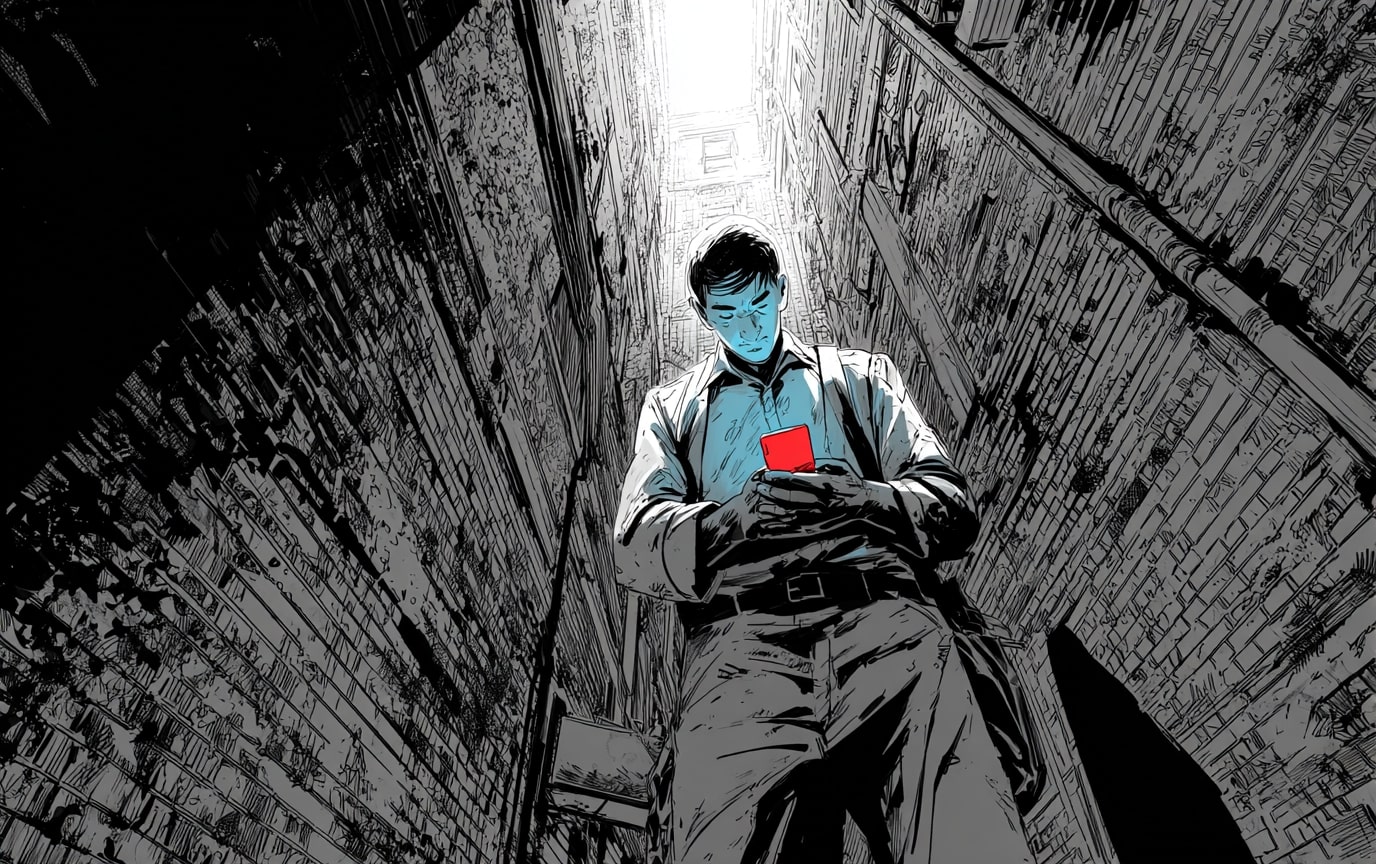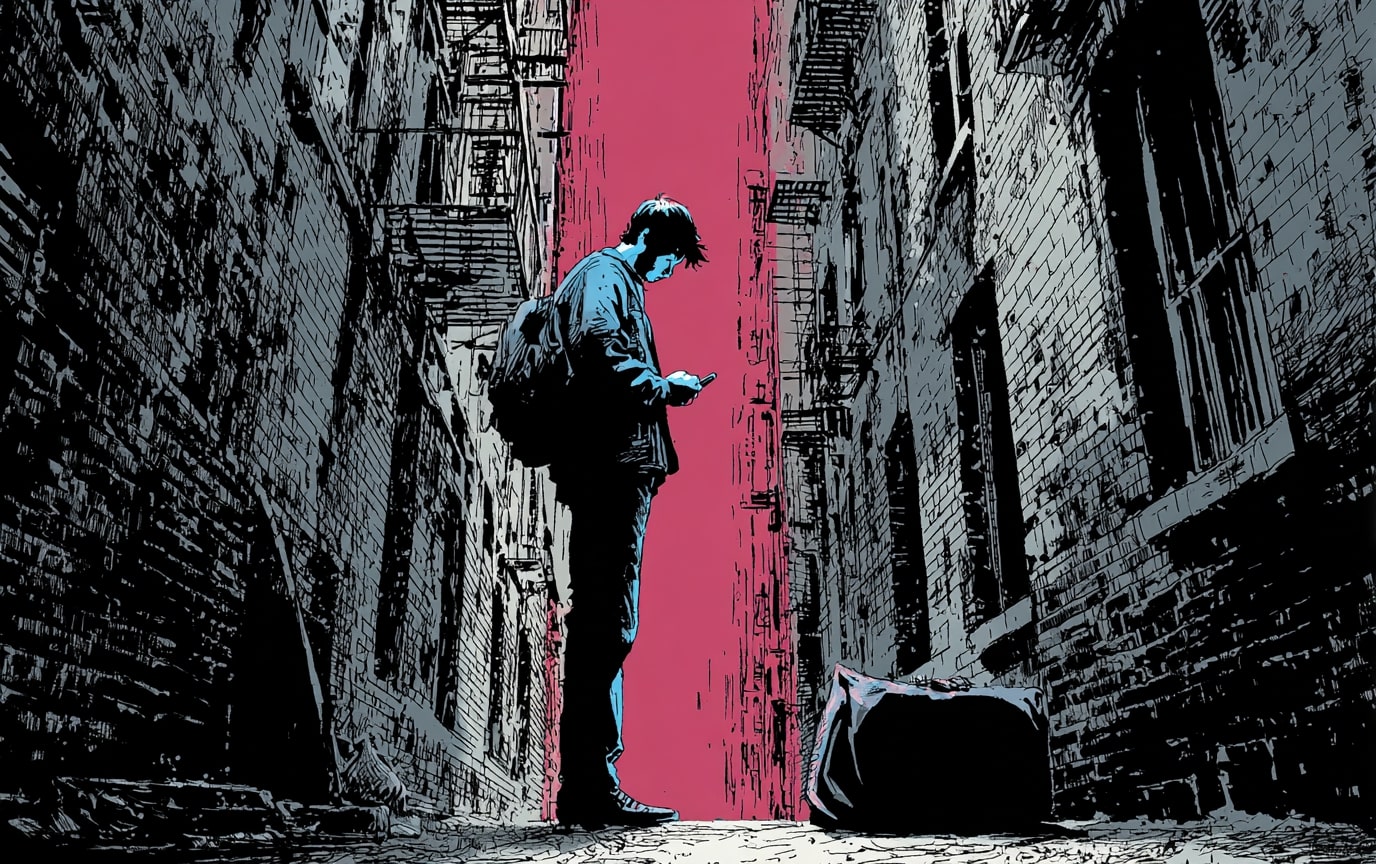
The High Score
Your score determines everything. In the gig economy, you do what it takes to keep that number up.
My Contributor Score is 972.
Has been for eight months.
I've never gotten a Special Task assignment.
I used to think that was a good thing.
It started when my score hit 850. That's when I noticed I was getting preferential treatment.
Better gig assignments. Higher pay. Shorter wait times for customer service.
My insurance rates dropped. My credit limit increased. My apartment application got approved in two hours instead of two weeks.
Everything became easier.
At 900 my company offered me a promotion without me applying. Just called me into the office one day and said they'd been impressed with my "reliability metrics."
At 950 I stopped needing to apply for anything. Things just came to me. Job offers. Apartment upgrades. Dating app matches that actually responded.
The algorithm was taking care of me.
At 972 I became untouchable.
That's not an exaggeration. I don't wait in lines anymore. I don't get declined for anything. I don't experience friction in any system.
I'm a model participant. Perfect reliability. Perfect compliance. Perfect score.
And I've never gotten a Special Task notification.
I asked my friend Xavier about it once. His score was 847. Decent but not great.
"Have you ever gotten one of those Special Task things?"
He went quiet. "Yeah. Once."
"What was it like?"
"Can't talk about it. NDA."
"But was it worth it?"
He looked at me weird. "You've never gotten one?"
"No."
"With your score? That's strange."
"Why would a high score get Special Tasks? Seems like they'd go to people who need the money."
"It's not about money. It's about...I don't know. Selection. Fit. You should've gotten one by now."
But I didn't.
And I stopped noticing other things.
Like Xavier.
I saw him every week. We'd get coffee. Talk about work. Normal friend stuff.
Then one week he wasn't responding to texts.
Called him. Voicemail.
Tried again the next day. Number disconnected.
Drove to his apartment. Different name on the mailbox.
I asked the building manager about Xavier Roberts.
"Don't know anyone by that name."
"He lived here. Unit 304. I've visited him here."
"Sorry. Can't help you."
I checked social media. His Facebook was gone. Instagram gone. LinkedIn gone.
Xavier had vanished.
I called our mutual friend Diana. Asked if she'd heard from him.
"Who?"
"Xavier. Xavier Roberts. We all got drinks together last month."
"I don't know a Xavier."
"Diana, we've been friends with him for two years."
"I think you're confused. I don't know anyone named Xavier."
I showed her photos on my phone. Pictures of the three of us at bars. At restaurants.
She looked at them like they were fake.
"I've never seen this person before."
I hung up.
Sat in my car for an hour trying to figure out what the hell was happening.
Then I started paying attention.
Over the next three months, six more people I knew disappeared.
Not all at once. One at a time. Different weeks.
My coworker Michelle stopped showing up. HR said she'd resigned. I checked her desk. Empty. No one remembered her working there.
My upstairs neighbor Tim. Gone. New tenant moved in. Swore they'd been there for six months.
My barista Alex. The one who knew my order by heart. Vanished. New barista didn't recognize me.
Every time someone disappeared, I'd ask around. No one else remembered them.
Except me.
I started keeping a list. Names. Dates. Last time I saw them.
Fourteen people so far.
All gone. All erased from everyone's memory except mine.
I checked their Contributor Scores before they vanished. All between 780 and 890.
All in the range that seemed to get Special Task assignments.
I started asking people I barely knew about Special Tasks.
Most wouldn't talk about it. NDAs. Fear. Whatever.
But a few hinted at things.
Tasks that paid well but made no sense. Observing people through glass. Being observed. Questions that felt more like interrogations.
"How many have you done?" I asked one guy.
"Three."
"Ever plan to do more?"
"Don't have a choice. They keep assigning them."
"What happens after six?"
He looked scared. "I don't know. I'm trying not to find out."
I ran into him two weeks later.
Except it wasn't him. Looked like him. Moved like him. But something in his eyes was different.
"Hey. It's me. We talked about Special Tasks."
"I don't think so."
"Two weeks ago. Coffee shop downtown."
"You must have me confused with someone else."
He walked away.
I checked his Contributor Score that night. Found his profile through mutual connections.
Status: Inactive.
But he was still walking around. Still going to work. Still existing.
Just not existing in the same way.
I realized something.
The high score wasn't protecting me.
It was excluding me.
Everyone in the middle range was getting pulled into this system. These tasks. These transformations or replacements or whatever was happening to them.
But people with very high scores weren't invited.
We were kept outside. Kept separate.
Why?
I started researching Harmonic Solutions. The company that ran the Special Tasks.
Found nothing. Shell companies. Delaware registrations. Dead ends.
But I found something else.
A research paper from 2018. Before Harmonic Solutions existed.
"Distributed Consciousness Modeling: Behavioral Replication Through Iterative Sampling."
Academic paper. Published in some obscure journal. Authors from a tech company that no longer existed.
The abstract was dense. But the gist was clear.
They were trying to create behavioral models of people by generating multiple instances and running them through variations of scenarios. Measuring how responses changed. Building predictive models.
The paper had been retracted. "Ethical concerns regarding human subject protocols."
But the methodology was there.
Create copies. Run scenarios. Collect data. Build models.
I searched for the authors. All gone. No LinkedIn profiles. No current employment listed. No online presence.
Like they'd been erased too.
I found one name with a Facebook page still active. Dr. Sarah Vickers. The profile said she'd worked in tech research but recently transitioned to other work.
The posts were generic. Bland. Like someone was updating it who didn't really know her.
I sent a message anyway. "I'm researching distributed consciousness modeling. Need to talk."
No response.
Tried again a week later. Account was gone.
I was starting to understand.
The middle-tier people were being used to build something. Models. Copies. Distributed versions.
High-tier people were being preserved. Kept clean. Unmodified.
But why?
I got my answer last month.
I was at a company retreat. Networking event for high performers. Everyone there had scores above 950.
We mingled. Talked business. Exchanged cards.
The keynote speaker was from Harmonic Solutions.
First time I'd seen anyone from the company in public.
She talked about optimization. About efficiency. About building better systems through better understanding of human behavior.
About how the future wasn't about replacing humans with AI, but about distributing humans across multiple instances to create more resilient systems.
"Imagine," she said, "a workforce that never gets sick because when one instance is unwell, others can cover. Imagine relationships that never fail because multiple versions exist and one of them will always be compatible. Imagine a society where everyone's optimal self is always available because we've created enough variations to guarantee success."
Everyone applauded.
I felt sick.
After the presentation I approached her.
"What happens to people in the middle tier? The ones who get distributed?"
She smiled. "They become the foundation. The model layer. We learn from them. Their variations teach us how to optimize the high-tier participants."
"And what about us? The high-tier?"
"You're the end product. When we've perfected the modeling, when we understand all the variations, you'll be offered distribution as an enhancement, not a requirement. You'll get to choose which optimal instances to activate. Pick your best selves."
"What if we don't want to be distributed?"
"Then you stay singular. Live a normal life. But you'll be limited. Singular. While everyone else becomes plural. Optimal. Enhanced."
She handed me a business card.
"When you're ready to upgrade, call this number. People like you are our priority. We want to make sure the distribution process is perfect before we offer it to high-tier participants."
I took the card.
That night I looked at my Contributor Score.
Perfect metrics. Perfect compliance. Perfect participation.
I'd been so focused on maintaining my score, on being the ideal participant, that I hadn't noticed I was being groomed.
Kept clean. Kept singular. Kept as a template.
So when they perfected the distribution process on everyone else, they could offer it to me as an upgrade.
An enhancement.
A choice.
Except it wouldn't be a choice.
Because everyone else would be distributed. Living multiple lives. Always available. Always optimal.
And I'd be singular. Limited. One person in one place at one time.
I'd have to upgrade eventually. Fall behind otherwise.
The system was patient.
It didn't need to force me.
It just needed to wait until being singular became untenable.
I got a notification this morning.
Not a Special Task. Something else.
CONGRATULATIONS! You've been selected for Priority Enhancement Program.
This exclusive opportunity is available only to high-tier contributors (score 950+).
Choose your timeline: Immediate enrollment or observation period
Benefits include: Multiple instance coordination, optimal self-selection, priority access to all services, enhanced life satisfaction metrics
Contact us to learn more or schedule your consultation.
The decline button was there. Active. Clickable.
I could say no.
For now.
But everyone I know is disappearing. Being replaced. Being distributed.
Soon I'll be the only singular person left.
And then what?
My score is 972.
The algorithm has been taking care of me.
Preparing me.
Making sure I'm perfect before they copy me.
I have the business card.
I've been staring at it for three hours.
Thinking about Marcus. About Michelle. About Tim and Alex and all the others.
Wondering if they're happier now. Distributed. Plural. Optimal.
Wondering if I'll be happier too.
Wondering if happiness even means anything when you're spread across multiple instances.
I'm going to call the number.
Not today.
But soon.
Because the alternative is being singular in a plural world.
And that's not sustainable.
My score is 972.
Best it's ever been.
They've been waiting for me.
I just didn't realize I was being saved for last.
Table of Contents

Get World Updates
Be notified when new stories or content are added to this world.
